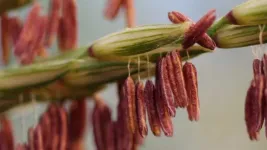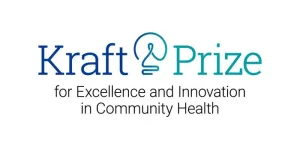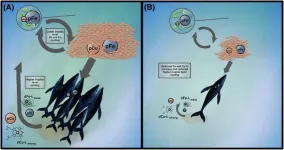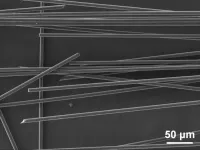(Press-News.org) INDIANAPOLIS – Breast cancer is the world’s most prevalent cancer. Although earlier detection and targeted treatment have resulted in high survival rates, many breast cancer survivors experience fear of cancer recurrence. For some survivors this fear is occasional, for others it is persistent and often debilitating.
A new study of breast cancer survivors has found this psychosocial challenge impacts almost every important domain of their lives – the emotional, behavioral, cognitive, relational and professional. A larger number of domains was affected, and they were affected more frequently in those with greater fear of recurrence.
“Study participants were reportedly disease free and trying to rebuild their lives during their post-treatment survivorship,” said senior author Shelley Johns, PsyD, a researcher-clinician with the Regenstrief Institute, the Indiana University School of Medicine and the IU Melvin and Bren Simon Comprehensive Cancer Center. “Our findings provide clarity about how breast cancer survivors are impacted by fear of recurrence and insight into how they cope with this understandable fear.”
The impact of fear of recurrence ranged from mildly to severely disruptive. Women experiencing mild fear reported sporadic occurrences. Those with significant fear described it as persistent and/or easily triggered across multiple life domains.
Disturbed sleep prior to mammograms was reported by survivors with mild fear, while frequent need to absent themselves from social activities, get into bed and pull the blanket over their eyes to avoid thinking about cancer was an example of severe, also known as clinical, fear of recurrence. Approximately 74 percent of study participants were experiencing clinical fear of recurrence.
347 women completed the study’s open-ended survey:
Many reported feelings of stress, irritability and sadness.
Some said fear of recurrence frequently interrupted their train of thought, for example interfering with their job when their disease popped into their mind.
Survivors who thought that they were more worried than they should be compared to other breast cancer survivors reported feelings of embarrassment.
Some indicated it was too hard to be around their family because they were constantly wondering how many more Christmases and birthdays they were going to have with their children.
The paper’s title includes the phrase, “out of a dark place,” a direct quote from a breast cancer survivor who said that she joined the study to support “getting out of a dark place.”
Other survivors noted the specific impact of fear of cancer recurrence on daily life:
“It motivates me to maintain healthy habits. Such as eating five servings of fruits and vegetables, working out and drinking less alcohol. It also motivates me to maintain mental health and physical health.”
“Whenever I feel any kind of pain or discomfort in the area where I had cancer it concerns me and I feel anxious and irritable.”
“Cancer is all around us. Everything is a trigger. Anniversaries, other family/friends’ diagnosis, commercials about drugs, social media, etc. …it’s a daily thought or a daily emotion.”
“Sit for hours doing nothing, do not turn on TV, sleepless, find hours pass by and I am in the same place just thinking, do not participate in activities, get lost driving because I’m deep in thought, compulsive online shopping, collecting things.”
Survivors offered specifics on their coping mechanisms:
“Just trying to be positive, eat healthy, take my meds, get enough sleep, exercise three times a week, and hope for the best.”
“I try to avoid things that make me think about recurrence. For example, unfollowing social media accounts, fast forwarding or leaving the room when commercials about cancer medications are on.”
“I try not to focus on it. I also speak with family members who have lived with cancer longer than myself.”
“Prayer, meditation, staying in the moment, and focusing on making the best of each day.”
While many survivors cited avoidance of thoughts and feelings as their primary coping behavior, Dr. Johns, a health services researcher and clinical health psychologist, observes that research is needed to probe the function of various coping behaviors to determine if they are helpful.
In a question seldom posed to participants in a clinical trial, when asked what they hoped to gain by participating in the study, the majority indicated that they sought senses of purpose, belonging, control and connection with others.
The paper concludes, “Fear of cancer recurrence is one of the most common psychological challenges for cancer survivors. Understanding affected life domains, coping strategies employed prior to intervention, and reasons for seeking guidance can inform the development and implementation of evidence-based interventions to effectively address fear of cancer recurrence among persons living with breast cancer.”
This study was funded by the National Cancer Institute of the National Institutes of Health under award numbers R01CA255480 (PI: Shelley Johns, PsyD) and T32CA117865 (PI: Victoria Champion, PhD) and the Walther Cancer Foundation (PI: Shelley Johns, PsyD).
“Getting Out of a Dark Place": a qualitative exploration of the impact, current coping, and what people with breast cancer hope to gain by participating in a fear of recurrence clinical trial” is published in the peer-reviewed journal Supportive Care in Cancer.
Authors and affiliations as listed in the paper:
Betsey Zenk Nuseibeh1, Michelle S Hoy2, Janet E Panoch2, Tayler M Gowan3, Deborah M Buckles4, Madison E Schwarz2, Shelley A Johns2,3.
1Indiana University School of Public Health, Bloomington, IN, USA.
2Indiana University School of Medicine, Indianapolis, IN, USA.
3Center for Health Services Research, Regenstrief Institute, Indianapolis, IN, USA.
4Indiana University Simon Comprehensive Cancer Center, Indianapolis, IN, USA.
Shelley A. Johns, PsyD
In addition to her role as a research scientist with the William M. Tierney Center for Health Services Research at Regenstrief Institute, Shelley A. Johns, PsyD, is a board-certified clinical health psychologist. Dr. Johns serves as an associate professor of medicine and is the Walther Scholar in Psycho-Oncology at the Indiana University School of Medicine. She also is a clinician-scientist at the Indiana University Melvin and Bren Simon Comprehensive Cancer Center.
END
Fear of breast cancer recurrence: Impact and coping with being in a dark place
2025-02-06
ELSE PRESS RELEASES FROM THIS DATE:
Korea University researchers analysis of income-related disparities in mortality among young adults with diabetes
2025-02-06
Korea University Researchers Analysis of Income-Related Disparities in Mortality Among Young Adults with Diabetes
Type 2 diabetics (T2D) under 40 years of age with low income have a threefold higher risk of mortality
Young people with T2D are more affected by income than elderly people with T2D
The research team of Professor Sin Gon Kim and Professor Nam Hoon Kim of department of internal medicine (Endocrinology and Metabolism) of Korea University Anam Hospital, and Professor Ji Yoon Kim of Samsung Medical Center confirmed that young adults with T2D with low income have 3 times higher mortality ...
Study shows link between income inequality and health and education disparities may drive support for economic reform
2025-02-06
New research forthcoming in Social Psychological and Personality Science shows that when people understand how income inequality creates disparities in healthcare and education access, they become more likely to support policies addressing economic inequality.
Across four studies, the research shows that highlighting connections between income gaps and inequalities in health and education access decreases acceptance of economic disparities and increase support for redistributive actions.
"Research has shown that people often tolerate income inequality. However, our study shows that when people perceive ...
HonorHealth Research Institute’s Chief Medical Officer is recognized by the world’s leading organization for cancer doctors
2025-02-06
SCOTTSDALE, Ariz. — Feb. 6, 2025 — Michael S. Gordon, M.D., Chief Medical Officer of HonorHealth Research Institute, today was named a Fellow of the American Society of Clinical Oncology (FASCO), the world’s leading professional organization for physicians and oncology professionals caring for people with cancer.
“The title of FASCO is a recognition bestowed upon ASCO members who have shown extraordinary dedication for their voluntary efforts that benefit the Society, the specialty of oncology, and most importantly, the patients whom we serve,” according to a letter ...
InsectNet technology identifies insects around the world and around the farm
2025-02-06
AMES, Iowa – A farmer notices an unfamiliar insect on a leaf.
Is this a pollinator? Or a pest? Good news at harvest time? Or bad? Need to be controlled? Or not?
That farmer can snap a picture, use a smartphone or computer to feed the photo into a web-based application called InsectNet and, with the help of machine learning technology, get back real-time information.
“The app identifies the insect and returns a prediction of its taxonomic classification and role in the ecosystem as a pest, predator, pollinator, parasitoid, decomposer, herbivore, indicator ...
Restoring predators, restoring ecosystems: Yellowstone wolves and other carnivores drive strong trophic cascade
2025-02-06
Restoring Predators, Restoring Ecosystems: Yellowstone Wolves and other Carnivores Drive Strong Trophic Cascade
Corvallis, OR — February 6, 2025 — A new study reveals the profound ecological effects of wolves and other large carnivores in Yellowstone National Park, showcasing the cascading effects predators can have on ecosystems. In Yellowstone, this involves wolves and other large carnivores, elk, and willows. The research, which utilized previously published data from 25 riparian (streamside) ...
Corn’s ancient ancestors are calling
2025-02-06
The domestication of maize is one of the greatest examples of humankind’s impact on evolution. Early farmers’ pre-industrial plant breeding choices turned corn from a nearly inedible crop into the major global food source it is today.
Now, Cold Spring Harbor Laboratory Professors Rob Martienssen and Thomas Gingeras are uncovering the genetics behind choices farmers made 9,000 years ago. They aim to better understand how evolution works and to help today’s farmers update corn so it can grow in harsh conditions. To ...
Mass General Brigham’s Kraft Center Announces the 2025 Kraft Prize for Excellence and Innovation in Community Health
2025-02-06
Boston, MA – Today, the Kraft Center for Community Health at Mass General Brigham announced the launch of the inaugural Kraft Prize for Excellence and Innovation in Community Health. This national prize seeks to honor a transformative organization, program or innovation that is making a measurable impact on health outcomes and has the potential to become a scalable model for addressing community health.
“We established The Kraft Center for Community Health with a mission to expand access to high-quality, cost-effective healthcare for medically underserved patients, families, and communities,” ...
Whale poop contains iron that may have helped fertilize past oceans
2025-02-06
The blue whale is the largest animal on the planet. It consumes enormous quantities of tiny, shrimp-like animals known as krill to support a body of up to 100 feet (30 meters) long. Blue whales and other baleen whales, which filter seawater through their mouths to feed on small marine life, once teemed in Earth’s oceans. Then over the past century they were hunted almost to extinction for their energy-dense blubber.
As whales were decimated, some thought the krill would proliferate in predator-free waters. But that’s not what happened. Krill populations dropped, too, and neither population has ...
Mercury content in tuna can be reduced with new packaging solution
2025-02-06
Fish is a high-quality source of protein, containing omega-3 fatty acids and many other beneficial nutrients. However, the accumulation of toxic mercury also makes fish consumption a concern, of which tuna is particularly susceptible. Researchers from Chalmers University of Technology in Sweden have come up with a novel approach to packaging canned tuna infused in the water-based solution of amino acid cysteine. It was shown to remove up to 35 percent of the accumulated mercury in canned tuna, significantly reducing human exposure to mercury via food.
Fish and other seafood, provide people with a broad variety of essential nutrients in their diet However, the consumption ...
Recycling the unrecyclable
2025-02-06
Epoxy resins are coatings and adhesives used in a broad range of familiar applications, such as construction, engineering and manufacturing. However, they often present a challenge to recycle or dispose of responsibly. For the first time, a team of researchers, including those from the University of Tokyo, developed a method to efficiently reclaim materials from a range of epoxy products for reuse by using a novel solid catalyst.
There’s a high chance you are surrounded by epoxy compounds as you read this. They are used in electronic devices due to their insulating ...







